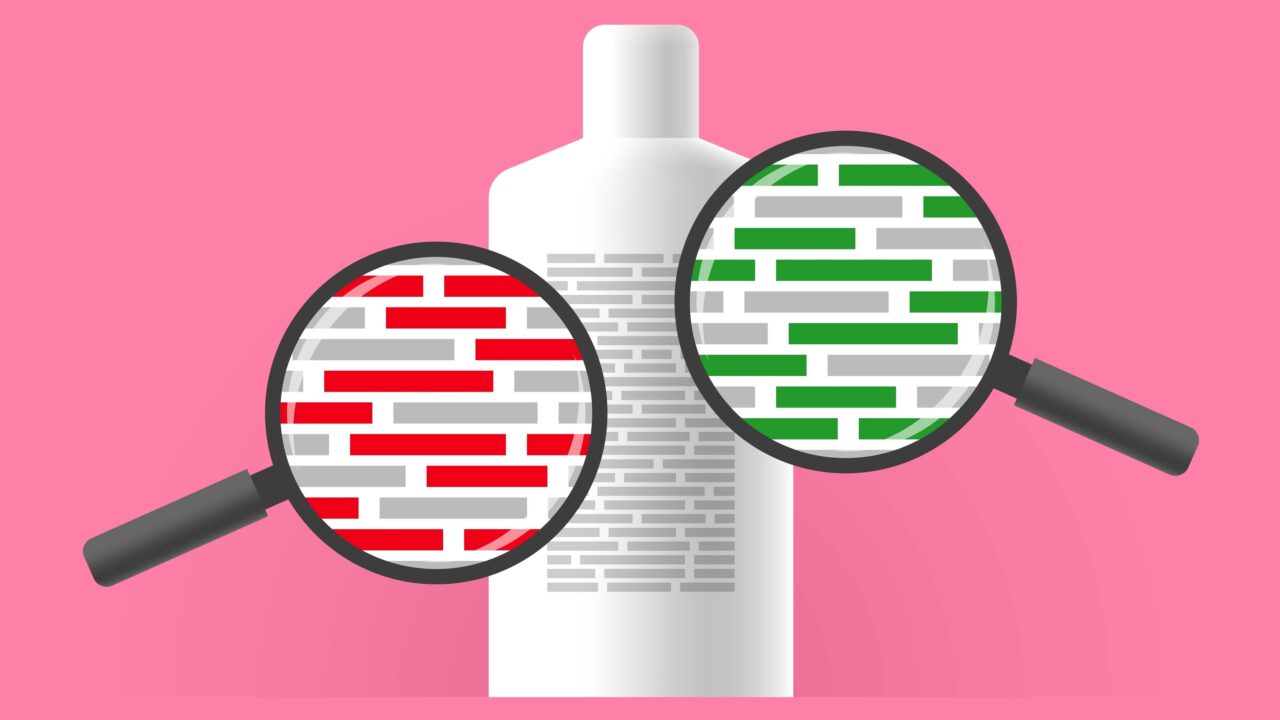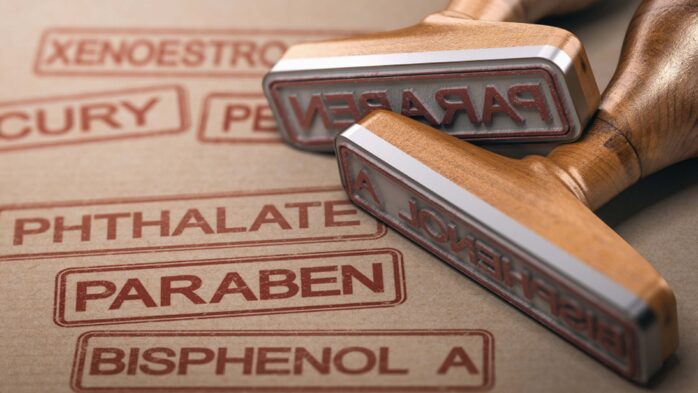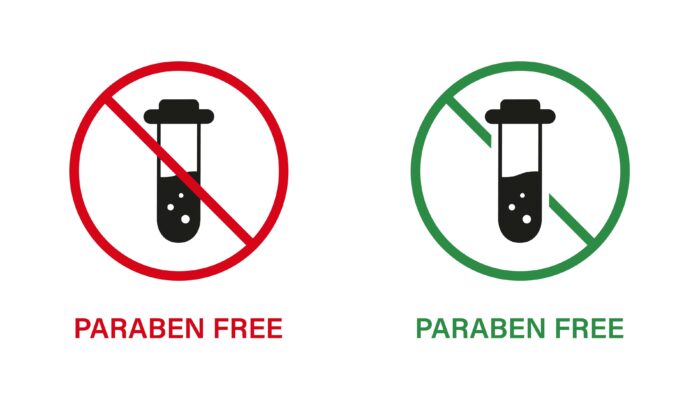
What are parabens and should you really be looking for paraben-free skincare and makeup when shopping for beauty?
You might have noticed many skin and hair care products are advertised as “paraben-free”, or come across online influencers warning parabens are terrible for your health.
It’s so prolific that going “paraben-free” has become a very effective marketing tool. If people want paraben-free products and will pay more for them, why not give them paraben-free products?
But paraben-free does not mean preservative-free, nor does it mean the products are safer, even if that’s what is implied.
To get to the bottom of all this, below we explain what a paraben is, how they work and whether parabens are as bad for us as reports would suggest.
Chemically speaking, paraben is the collective name for a group of closely related compounds called the parahydroxybenzoates.
The “para” refers to the positions of certain parts of the molecule – it’s also where the “para” in “paracetamol” comes from – and parabens are a group of related molecules added in small amounts (less than 1%, usually lower) to food, drugs and cosmetics as preservatives.
There are several different types of paraben, so you might see the following in a product’s ingredients list.
 Shutterstock
Shutterstock Parabens have been in use for decades and they work by preventing the growth of harmful bacteria and fungi in order to improve product shelf life and safety.
More than one paraben may be found in a product, and they can be combined with other preservatives to protect against a broad range of microorganisms.
Parabens can be absorbed through the skin or ingested but are generally excreted quickly, usually via urine.
Some studies on cell cultures or animals have suggested parabens can affect the endocrine system (which controls our hormones) but it’s not clear how or even if this is relevant to humans.
The amounts used in some of those animal studies are much, much higher than you would find in makeup, for example.
A lot of these studies also involved feeding the chemicals to the animals or injecting them, rather than putting them on the skin, which results in much lower absorption into the body.
You might also have heard parabens are “oestrogenic”, meaning they can mimic or affect oestrogen in the body. In fact, parabens are far less oestrogenic than natural oestrogen. They are also less oestrogenic than phytoestrogens, compounds produced naturally by many plants.
So, even though there have been studies raising concern, the overall risk in humans using parabens in normal doses is low.
This goes back to an often misinterpreted 2004 study that found parabens in breast tissue and breast cancers. This doesn’t mean much by itself and doesn’t justify claims parabens cause cancer though because correlation is not causation.
The presence of parabens in a tumour does not mean parabens caused the tumour.
In fact, the researchers in the 2004 study only looked at breast cancer tissue and didn’t compare it with healthy tissue. They even found parabens in their blank samples, with no tissue in them at all.
So, as others have noted, it’s hard to draw any real conclusion from it about the role parabens may or may not play in cancer risk.
A lot of the endocrine disruptor stuff you hear on social media about parabens is usually from someone trying to spruik a “natural” or “clean” alternative, so you might not be seeing the full picture.
 Shutterstock
Shutterstock And remember: the presence of something does not automatically mean it is harmful. Toxicology 101 is “the dose makes the poison”. Everything is toxic in the right amount, even water. We should not ask whether a chemical causes cancer or acts as an endocrine disruptor, but whether it does so at the levels to which we are exposed.
The scientific consensus from the US Food and Drug Administration, the Australian Industrial Chemicals Introduction Scheme, the European Medicines Agency and others is that for parabens at normal dosages, the health risk is very low.
Ultimately, the choice to use products containing parabens is a personal one.
Parabens are well-researched, safe and necessary, but if you are worried, you can opt for paraben-free products.
Just be aware they will probably have a shorter shelf life, contain other (less effective) preservatives, and could well have other problems. I’d take a small amount of a well-studied, and well-regulated, chemical in my skincare products over mould any day.![]()
Oliver A.H. Jones is a Professor at RMIT University. This article is republished from The Conversation under a Creative Commons license. Read the original.
